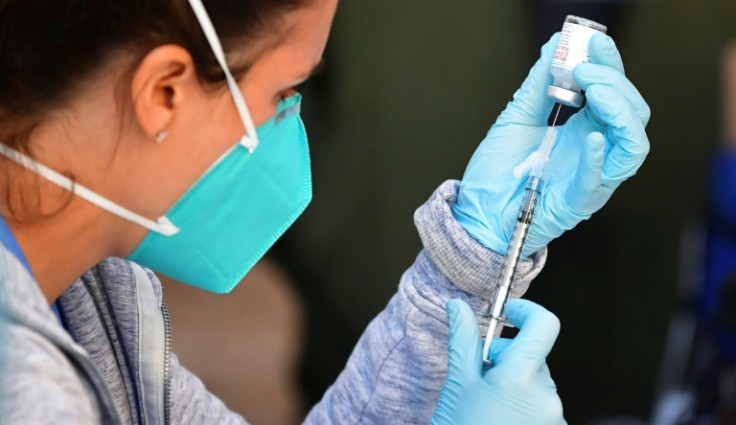UK Health Security Agency launches world-leading Vaccine Development and Evaluation Centre
UKHSA launches cutting-edge Vaccine Development and Evaluation Centre (VDEC) at Porton Down. 200 scientists target deadly pathogens, including COVID-19 variants, accelerating global vaccine research and readiness.

The United Kingdom Health Security Agency (UKHSA) has taken a groundbreaking step towards safeguarding global health by inaugurating its state-of-the-art Vaccine Development and Evaluation Centre (VDEC) at the Porton Down site.
With an emphasis on cutting-edge research and development, the centre aims to combat existing and emerging health threats by accelerating vaccine development and evaluation.
Covering over 2,800 square metres of laboratory space, the VDEC brings together over 200 leading scientists and researchers who are at the forefront of approximately 100 diverse projects. As part of UKHSA's three-year strategy, the centre is a testament to the UK's commitment to enhancing its global influence in vaccine research and pandemic preparedness.
The VDEC's multifaceted approach focuses on all stages of vaccine development, from the initial design of vaccine products to evaluating their effectiveness, including against newly arising variants. Its scope encompasses tackling life-threatening pathogens and diseases that pose potential health emergencies, particularly those without existing vaccines or regulatory approval in the UK.
Professor Dame Jenny Harries, Chief Executive of UKHSA, expressed her excitement about VDEC's impact on vaccine research and development capabilities, emphasising its crucial role in preparing the UK for major infectious disease threats.
She stated: "VDEC is a unique facility in the UK, delivering multiple critical early pre and post-clinical research and evaluation studies in a single research facility. This essential work will lead the way over the coming years in our fight against potentially deadly pathogens, further enhancing the UK's credentials as a global science superpower."
The centre is already contributing significantly to the global 100 Days Mission, initiated during the UK G7 presidency in 2021. The mission aims to deploy an effective vaccine within 100 days of identifying a new pandemic threat. UKHSA's published report demonstrates the nation's substantial progress in six key areas of vaccine research, development and manufacturing.
The VDEC is currently undertaking a range of important projects, including phase one clinical trials for a potential vaccine against Crimean-Congo haemorrhagic fever. The virus, transmitted through tick bites, poses a fatality risk of around 30 per cent. Furthermore, the centre is targeting other urgent challenges such as tuberculosis, Clostridium Difficile (C. diff) infections and the ongoing development of influenza vaccines.
The centre's capabilities also include high-throughput screening, enabling rapid assessment of the efficacy of hundreds or thousands of therapeutic drugs and treatments against newly emerged pathogens. This unparalleled capacity positions the UK at the forefront of global pandemic response efforts.
Professor Isabel Oliver, Chief Scientific Officer of UKHSA, highlighted VDEC's role in the 100 Days Mission, emphasising the centre's commitment to accelerating diagnostics, therapeutics and vaccine development to control emerging threats before they reach the scale of the COVID-19 pandemic.
She said, "UKHSA's scientific capacity and capability continues to develop and play a significant role on the global, national and local stage."
Secretary of State for Health and Social Care, Steve Barclay, applauded the VDEC's inauguration, stating: "This new centre cements the UK's global position spearheading pandemic preparedness, vaccine development and scientific discovery."
He underscored the centre's contribution to delivering new vaccines within the critical 100-day timeframe after identifying a new threat.
The VDEC is set to reshape the landscape of global health security, reaffirming the UK's commitment to scientific advancement and pandemic readiness. As the centre continues to make strides in research, development and evaluation, its work holds the promise of saving countless lives both within the UK and around the world.
© Copyright IBTimes 2025. All rights reserved.






















